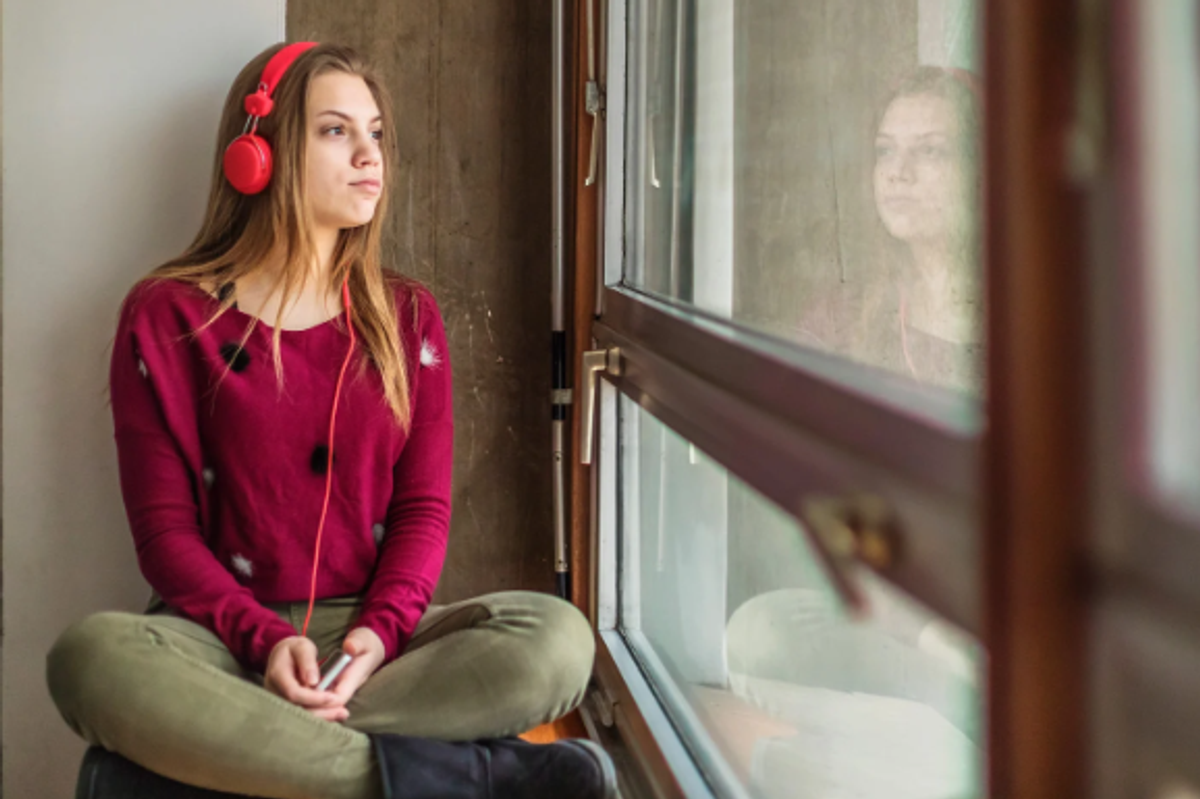Teen psychologist explains why kids actually love family vacations, even if they pretend not to
They may roll their eyes the whole time, but they're really enjoying themselves.
A teen looking out the window.
Saturday Night Live completely nailed it last year with the sketch “Goth Kid on Vacation,” which perfectly sums up what it's like to take a grumpy teen to a tropical paradise. Even though he's staying at a beautiful beach resort in Jamaica, he'd rather sit in his hotel room reading graphic novels or playing video games than water ski, snorkel, or, God forbid, get a tan.
The sketch struck a nerve because it's hilarious to see a kid dressed all in black lounging on a deck chair in Jamaica, while also resonating with parents trying to enjoy vacations with teens they can't quite reach. However, while the goth kid appears miserable, child and teen psychologist Dr. Erika Velez says he may still be forming core memories, even when it doesn't appear that way.
Do teens like going on vacation with their families?
Velez says the main reason kids and teens love going on vacation is the time they get with their parents.
@drerikav This might be surprsing to hear but its worth sharing! #childpsychologist #teenpsychologist #responsiveparenting #parentingtips #connectedparenting
"The things that they tend to mention, especially the younger ones, have more to do with the time that they spent with their parents, and here's what I mean: often it's that they share the room with their parents," Velez says in a TikTok video. "They tend to really enjoy that, and then having their parents' attention through meals, like there is a chance that throughout the school year they're not having breakfast, lunch, and dinner with their parents, and now they are."
Velez adds that even though teens may get moody on vacation, they're still creating core memories that will last a lifetime.
Velez says teens actually enjoy family vacations
"A recurrent theme that I hear, especially for parents of teenagers, they really wonder, like 'What's the point of bringing these kids along on this vacation, they're complaining the entire time?'" Velez continues. "You'd be surprised at some of the positive feedback that I also get. So I'd like to share that with you all that despite what's happening on the outside, on the inside, when they share these are memories and core memories that you are creating with your family."
Here are some of the comments on Velez's video:
"My 16-year-old always looks so miserable on vacation, but he also always asks when we're going on another one, so I feel like he enjoys our trips together."
"Yes, we took a disaster 2-day road trip, years later my daughter said it was the best."
"I absolutely love this! It's a reminder that making sure my son and I have a little getaway every year."
The pleasant takeaway from Velez's video is that the main thing kids and teens remember after a vacation is spending time with their parents, whether that means a long breakfast or hanging out in bed watching movies at the hotel. It's a great reminder that the destination may not be the most important part of a vacation. The real joy comes from breaking out of our routines and spending quality time with family.
- YouTube www.youtube.com

